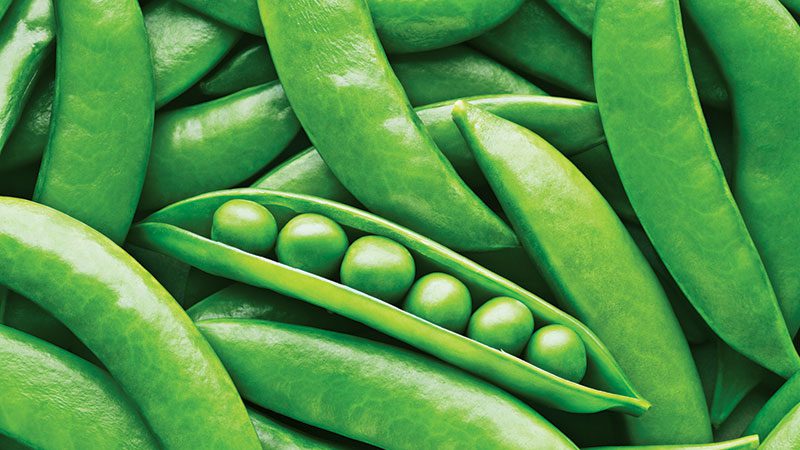News Bites
This article was originally published in March 2023

Edible winter peas
The first winter pea cultivars specifically developed to be used whole or as an ingredient in human food have been released by the U.S. Department of Agriculture (USDA)’s Agricultural Research Service. Winter or autumn-sown peas (Pisum sativum)—also called “black peas” or “field peas”—are annual legumes with excellent nitrogen-fixing abilities. Currently, winter peas are mostly grown in the Pacific Northwest as a cover crop to add nitrogen to farmers’ fields, for domestic animal feed and to attract deer and other game species. (ars.usda.gov)
Food and farming center
An agricultural dream in Snohomish County is inching closer to reality, due to dollars earmarked for community projects in Snohomish County included in the $1.7 trillion federal budget passed by Congress and signed by President Joe Biden. There’s $750,000 coming for the proposed Snohomish County Food and Farming Center at McCollum Park in Everett, envisioned as a processing and distribution center for ag products, a commercial kitchen for farmers and an indoor farmers market. The federal aid, which supplements roughly $7 million of local and state dollars, comes with critical decisions on operators and building design on the horizon. (Heraldnet.com)
Lobster sustainability
A major seafood guide announced it no longer considers Maine’s famed lobsters sustainable, given that whales on the brink of extinction are dying after becoming entangled in fishing gear. The decision to revoke the Marine Stewardship Council’s recognizable blue label is a blow to a business already feeling an economic pinch amid low lobster prices, high fuel costs and questions about its environmental practices. Conservationists have launched an aggressive campaign to do more to protect critically endangered right whales in the North Atlantic, whose numbers continue to decline. (WashingtonPost.com)
(Editor’s note: The Monterey Bay Aquarium’s Seafood Watch program had earlier assigned a “red” rating to the lobster for similar concerns.)
Using online recipes
According to a new report from New York City-based commerce advertising platform Chicory, 89% of consumers say they use digital recipes and 43% say they are using digital recipes more often. They aren’t just scrolling at home or work: Up to 75% of consumers look for recipes on their mobile device while they are at the grocery store. Organic search based on keyword is the most popular way that consumers find recipes online, followed by food blogs and websites and social media platforms Pinterest, Facebook and TikTok. (ProgressiveGrocer.com)
Vashon farmland preserved
King County has bought 110 acres of Vashon’s Misty Isle Farms, culminating a decade of work by islanders and others to protect at least part of the sprawling estate of the late Thomas Stewart. The purchased properties, all on the western half of the estate, include the rolling pasture that was long the site of a beloved local event, the Vashon Sheepdog Classic, which drew thousands annually and raised funds for local nonprofits. Woods to the west of the pasture, fronting SW 220th Street, are included, as are a total of 50 acres that have for three decades been part of King County’s Farmland Preservation Program, designed to preserve working farms and a rural way of life in King County. (VashonBeachcomber.com)
Pesticides and arthritis
Exposure to a commonly used pesticide could put people at higher risk of developing rheumatoid arthritis, according to a new study. The findings, published in the journal Environmental Science and Pollution Research, looked at potential links between the disease and a class of chemicals known as pyrethroids, which are found in many commercial products used to control insects, including household bug killers, pet sprays and shampoos. The research team, which was led by scientists from Anhui Medical University in Hefei, China, concluded that levels of pyrethroid indicators in the urine of those who had self-reported a rheumatoid arthritis diagnosis were “significantly higher” than those who had not reported the diagnosis. (TheNewLede.org)

King County solar power
Grants from the Washington State Department of Commerce will fuel a sustained expansion of King County’s solar power generation capacity. Totaling nearly $135,000, the grant funding will result in 200 kilowatts of total solar power generation capacity at the Solid Waste Division’s Shoreline and Bow Lake recycling and transfer stations. This announcement follows action earlier last year by the Solid Waste Division to install a new solar panel array at the Vashon Recycling and Transfer station that will generate about 172,000 kilowatt hours of electricity per year—enough to meet the annual needs of the transfer station, or about two dozen single-family homes. (KingCountyGreen.com)
Meatpacking grants
The Biden administration is awarding an additional $9.6 million in grants and loans to expand meat processing across the country, as the government tries to diversify the industry beyond four companies that have long dominated it. The effort to expand meat processing capacity comes after COVID-19 infections among workers in large meat processing facilities decimated meat production during much of 2020, contributing to higher food prices. The projects, funded by the USDA, vary from a $44,000 grant to a Virginia-based farm to support the processing of pasture-raised chickens, beef cattle and hogs for direct-to-consumer sales, as well as a $4.95 million loan to an Amarillo, Texas-based meatpacker to create a new processing facility for local producers and expand retail offerings. (Reuters.com)
Stink bug surge
The amount of invasive brown marmorated stink bugs this year tops anything seen in Oregon for at least five years and poses a serious threat to Oregon crops and garden plants, according to Oregon State University Extension Service’s orchard crop specialist. Nik Wiman, an associate professor in the College of Agricultural Sciences, said fruit and vegetable crops in the Willamette Valley have been affected. The insect feeds on at least 170 plants, particularly vegetables, pears, apples and hazelnuts, but also ornamentals. (Oregonlive.com)
Antarctic conservation
A study published in the journal PLOS Biology found that unless more intensive conservation efforts are undertaken by the global community, population declines will continue for approximately 65% of terrestrial species and seabirds that call Antarctica home. Despite protections from the Protocol on Environmental Protection to the Antarctic Treaty, which has been in effect since 1998, emperor penguins are at particularly high risk of population decline, followed by a species of nematode worm, Adélie penguins, and other seabirds. Authors of the study write that conservation of Antarctic species is key for developing new technologies or medicines, and for protecting the continent itself, which provides “essential ecosystem services” like regulating the global climate. (TheNewLede.org)
Vegan WIC foods
Millions of women and children might soon gain access to more vegan milk, yogurt and other dairy-free products. The USDA recently proposed to add additional dairy-free products to the Special Supplemental Nutrition Program for Women, Infants and Children (WIC), an assistance program that supports the well-being of millions of mothers and children across the country by providing access to food aimed to fill in nutritional gaps. Under the proposed updates through its Food and Nutrition Service, the USDA wants to give WIC users more options to dairy and eggs, which includes different sizes of the animal-derived versions but also substitutes such as soy yogurt and vegan cheese or lactose-free dairy and tofu instead of eggs. (VegNews.com)
Washington watersheds
A new report prepared for the Washington State Department of Ecology suggests climate change will continue to alter Washington’s rivers, potentially making some watersheds uninhabitable for salmon and steelhead by the end of the century. The report led by Washington State University researcher Jonathan Yoder and University of Washington researcher Crystal Raymond projects widespread increases in river flows in the winter, declines in the summer and rising stream temperatures. Researchers analyzed existing studies, and used new data sets from the River Management Joint Operating Committee and the NorWeST modeling project to predict future streamflows and temperatures. (SeattleTimes.com)
Vaccine for bees
The world’s first vaccine for honeybees has been approved for use by the U.S. government, raising hopes of a new weapon against diseases that routinely ravage colonies that are relied upon for food pollination. The USDA has granted a conditional license for a vaccine created by Dalan Animal Health, a U.S. biotech company, to help protect honeybees from American foulbrood disease. The vaccine, which will initially be available to commercial beekeepers, aims to curb foulbrood, a serious disease caused by the bacterium Paenibacillus larvae that can weaken and kill hives. (TheGuardian.com)
Deere tractor repair
Tractor maker John Deere has agreed to give its U.S. customers the right to fix their own equipment. Previously, farmers were only allowed to use authorized parts and service facilities rather than cheaper independent repair options. Deere and Co. is one of the world’s largest makers of farming equipment. (BBC.com)
Bristol Bay protection
The Conservation Fund and Bristol Bay Heritage Land Trust announced the permanent protection of over 44,000 acres of vital land and water habitat on Iliamna Lake that is essential to the health and vitality of Alaska’s Bristol Bay region—the largest wild salmon fishery in the world. A successful $20 million, 18-month fundraising effort—with half of the funding provided by The Wyss Foundation, Patagonia’s Holdfast Collective and Alaska Venture Fund—enabled The Conservation Fund’s purchase of three conservation easements on land owned by the Pedro Bay Corporation. Located in the heart of Bristol Bay in the northeastern end of Iliamna Lake, the easements protect critical habitat for millions of wild salmon and maintain subsistence uses, traditional activities and cultural resources important to the Pedro Bay Corporation and its Alaska Native shareholders. (Alaska-Native-News.com)
